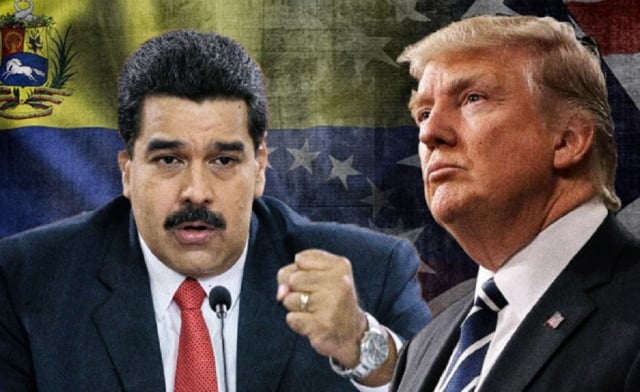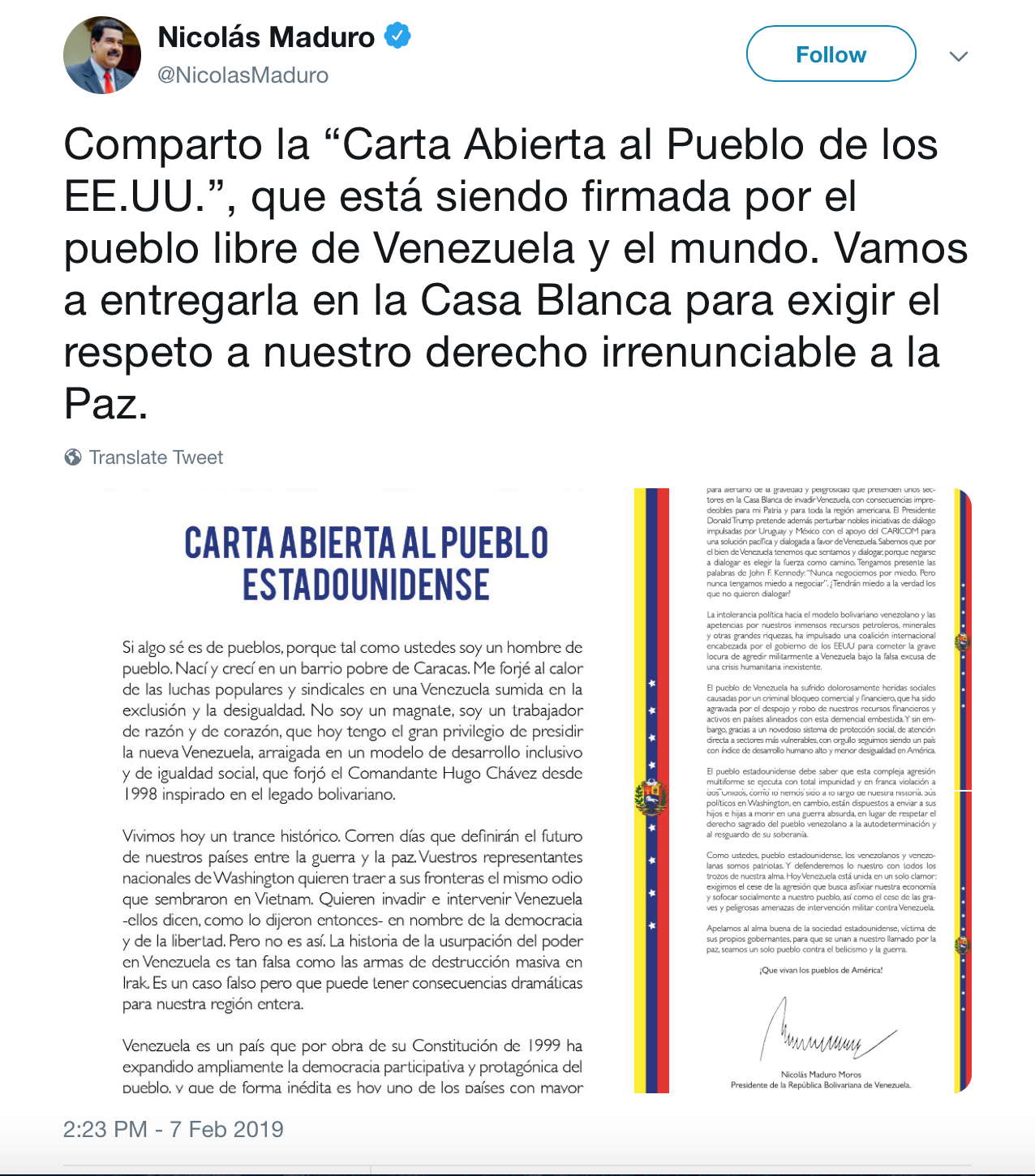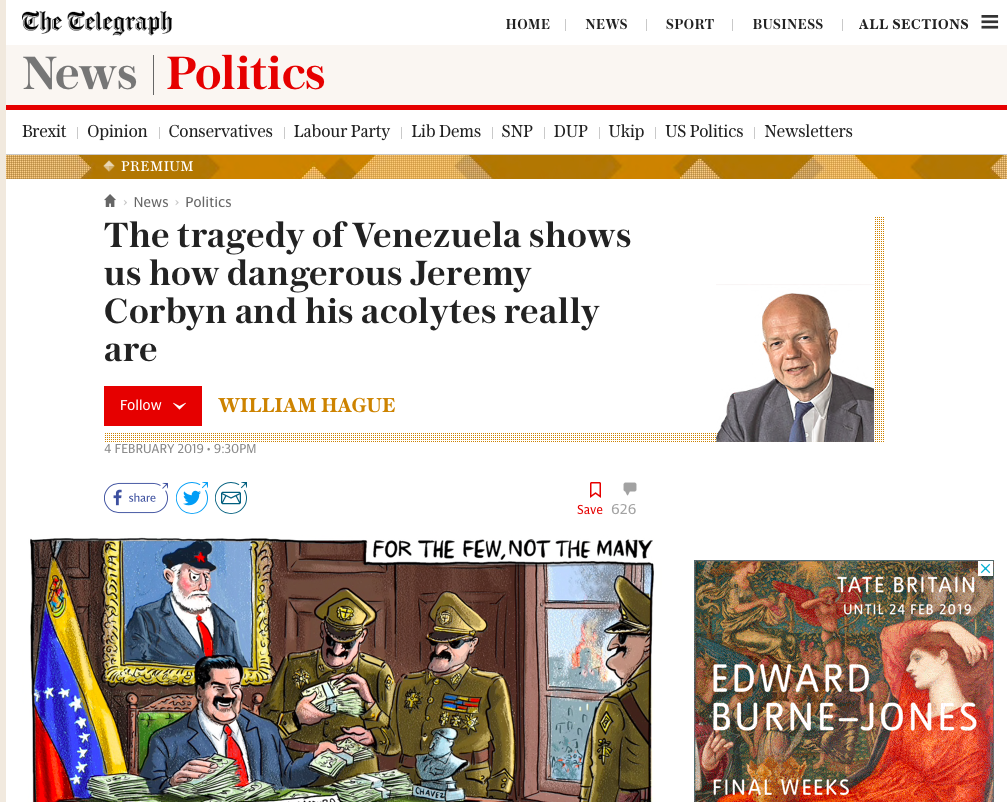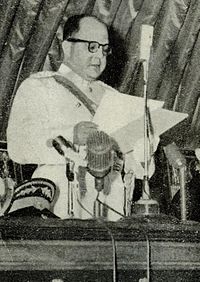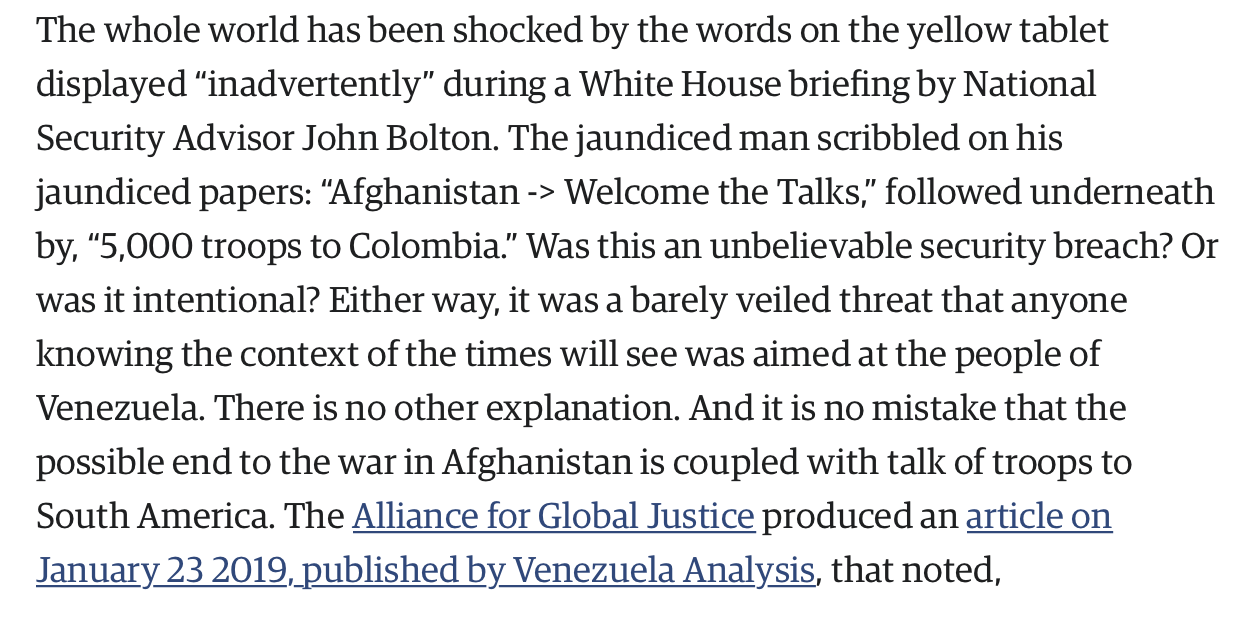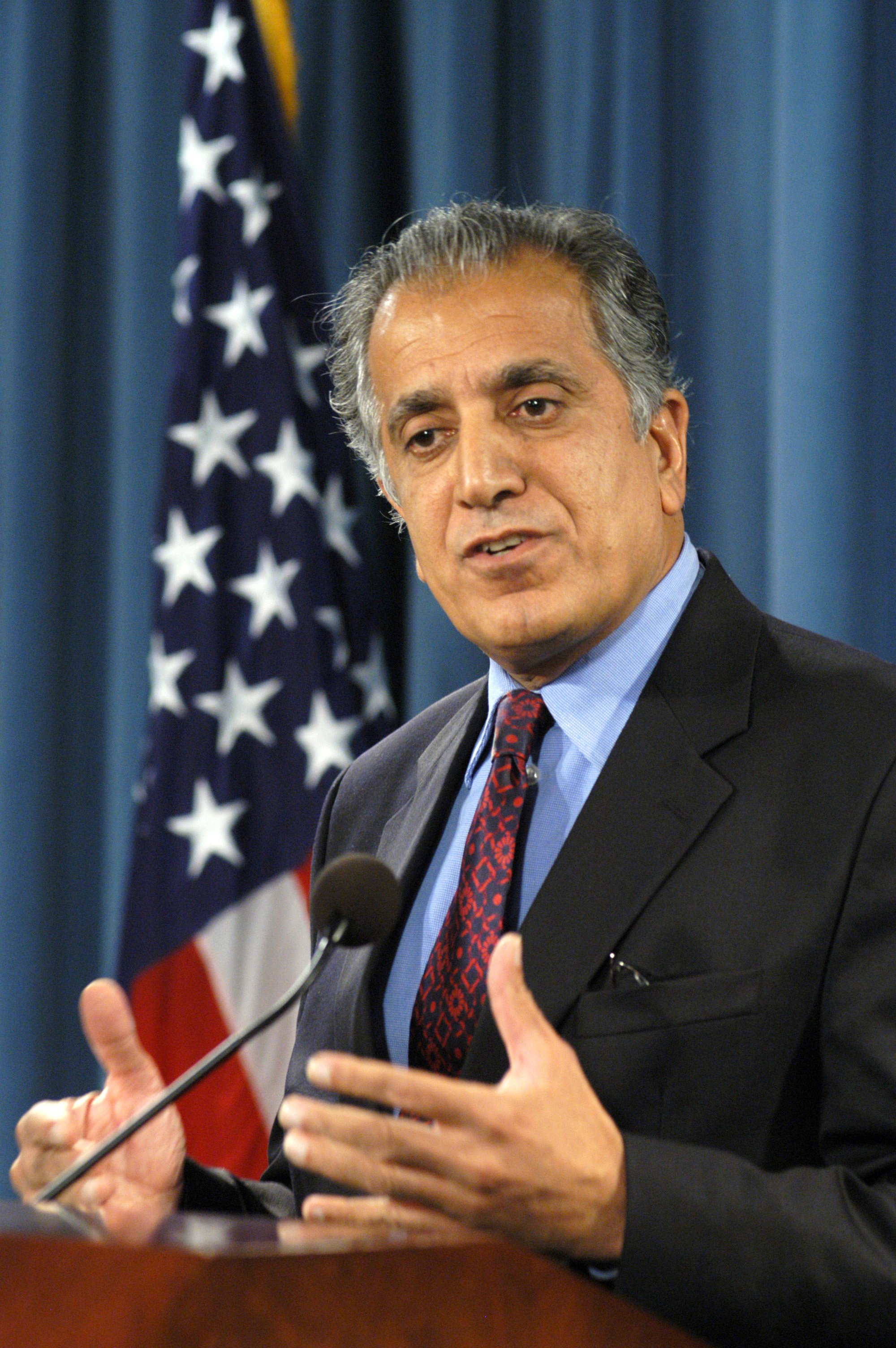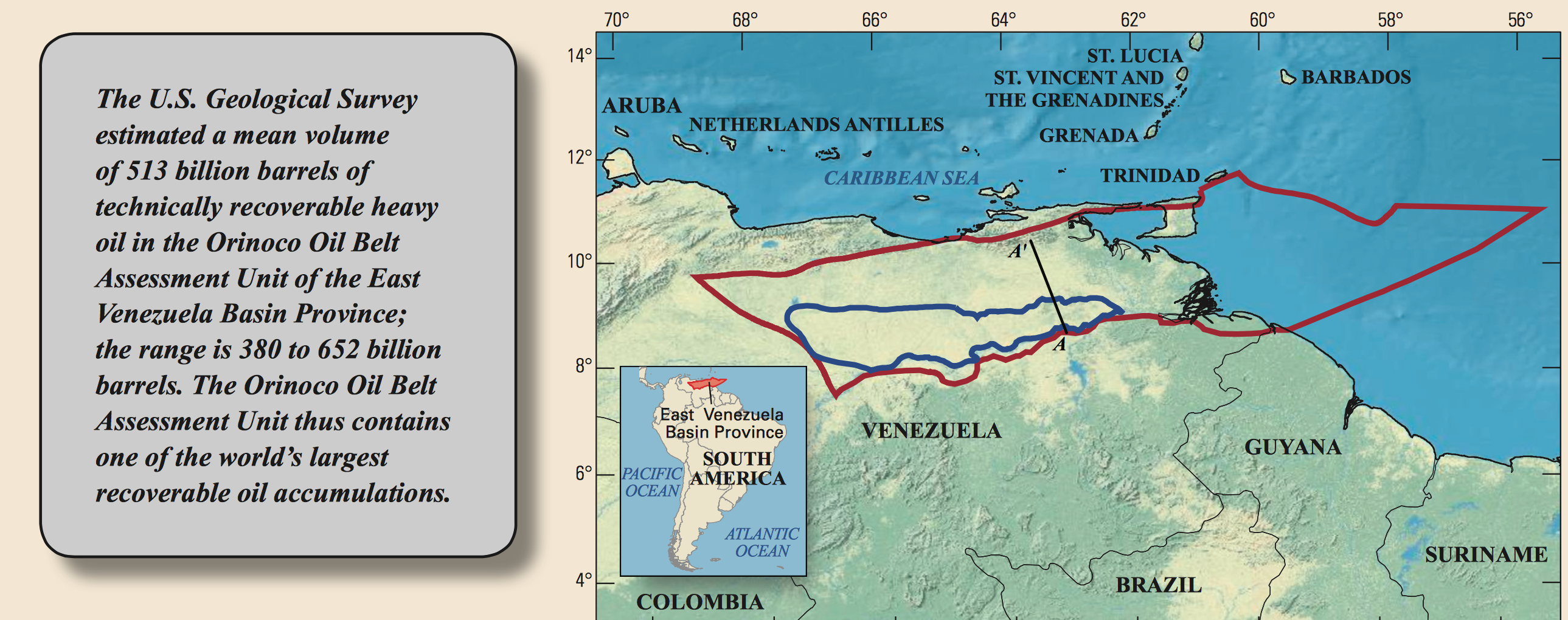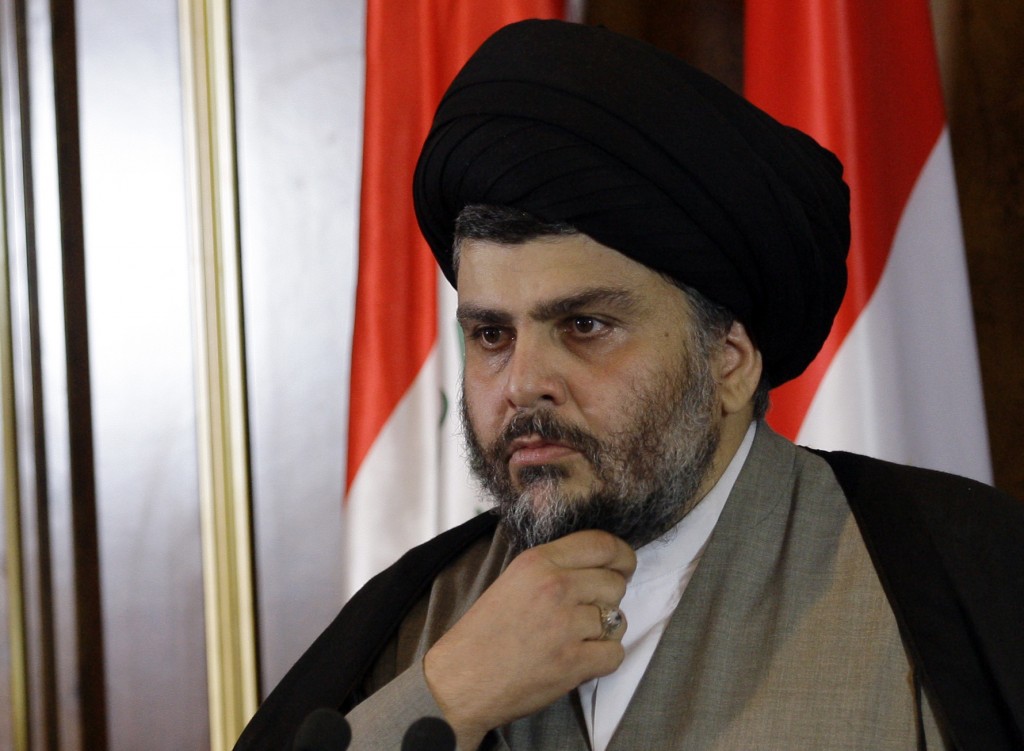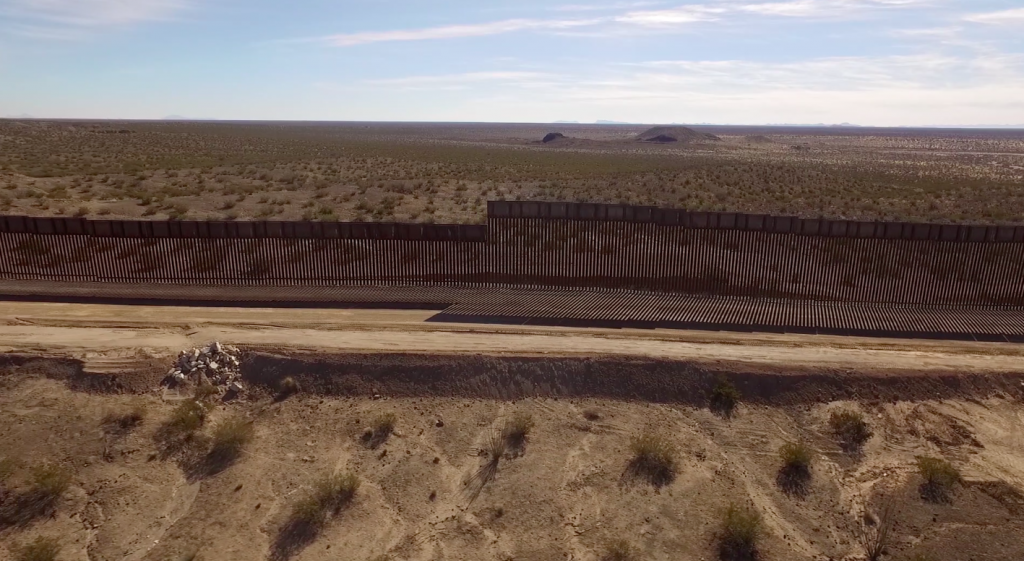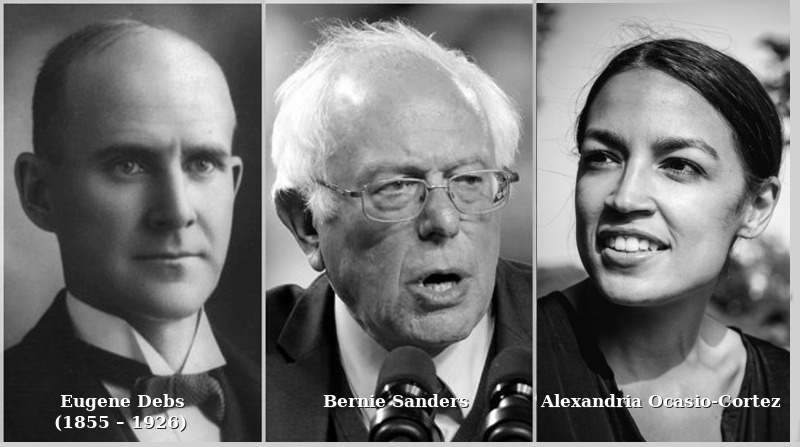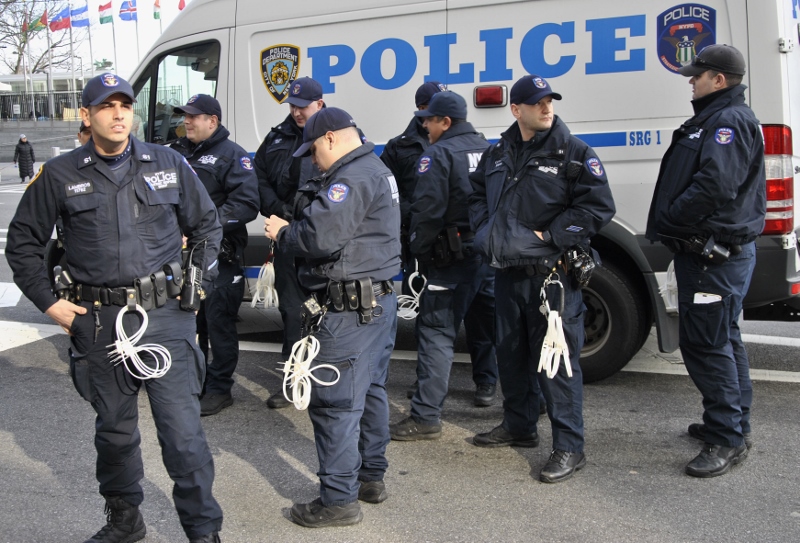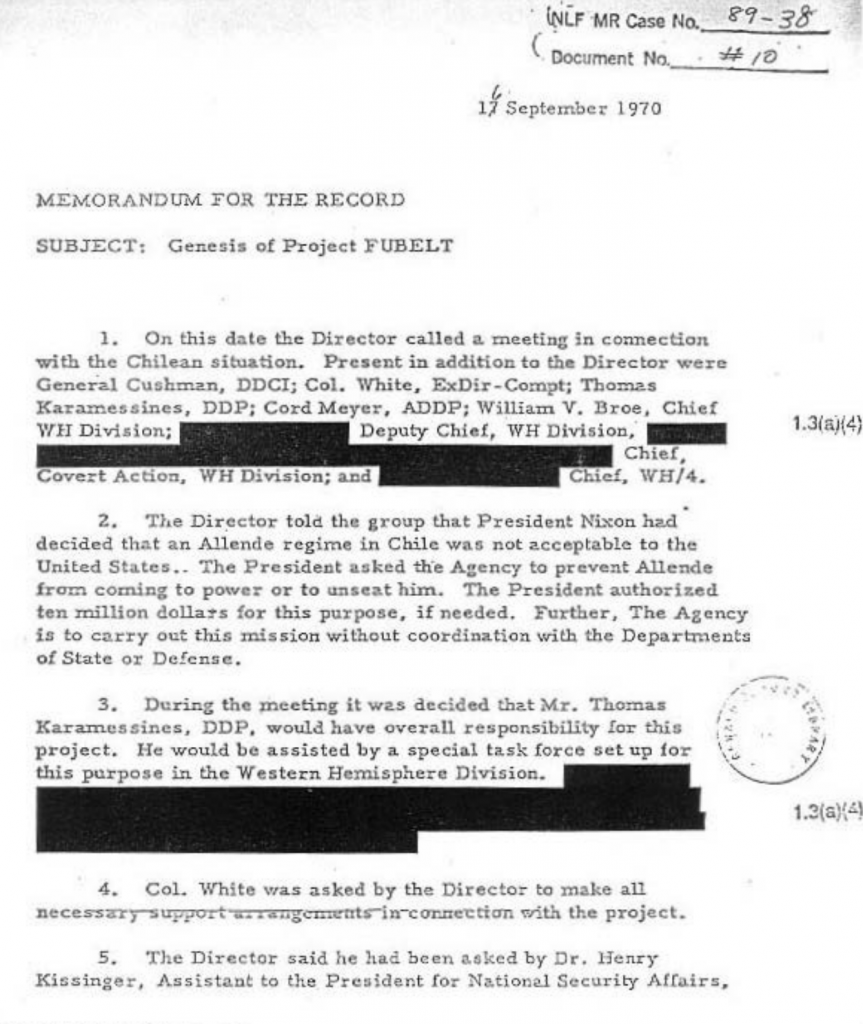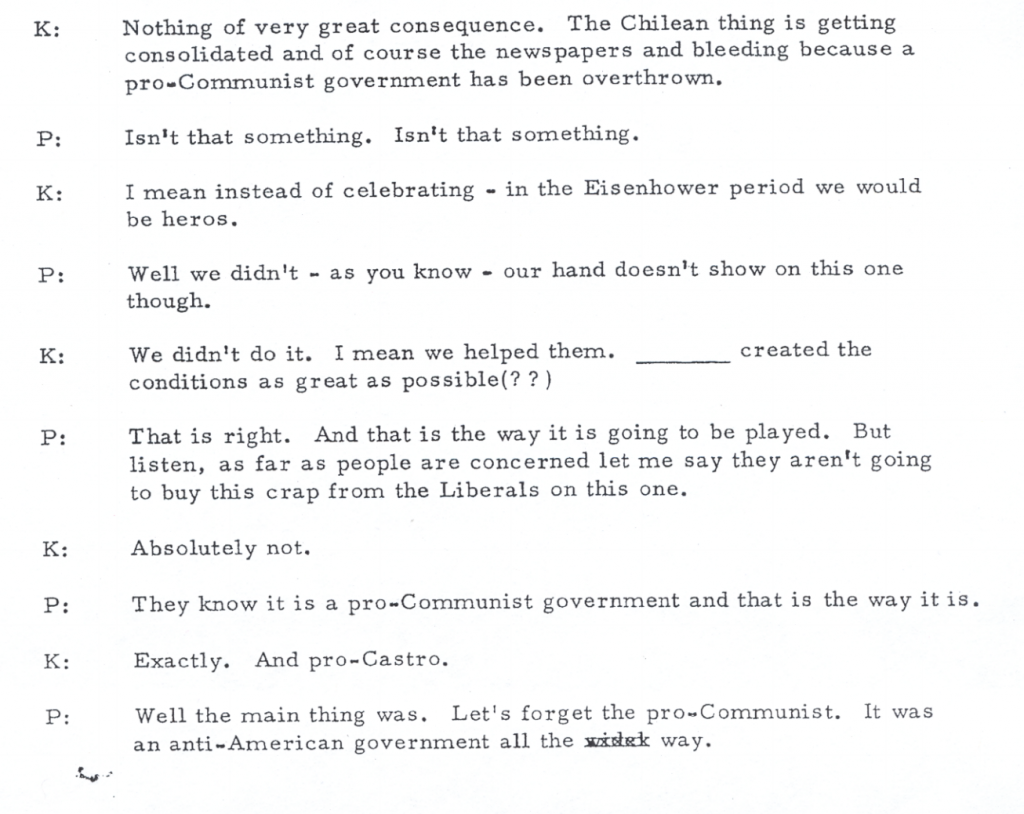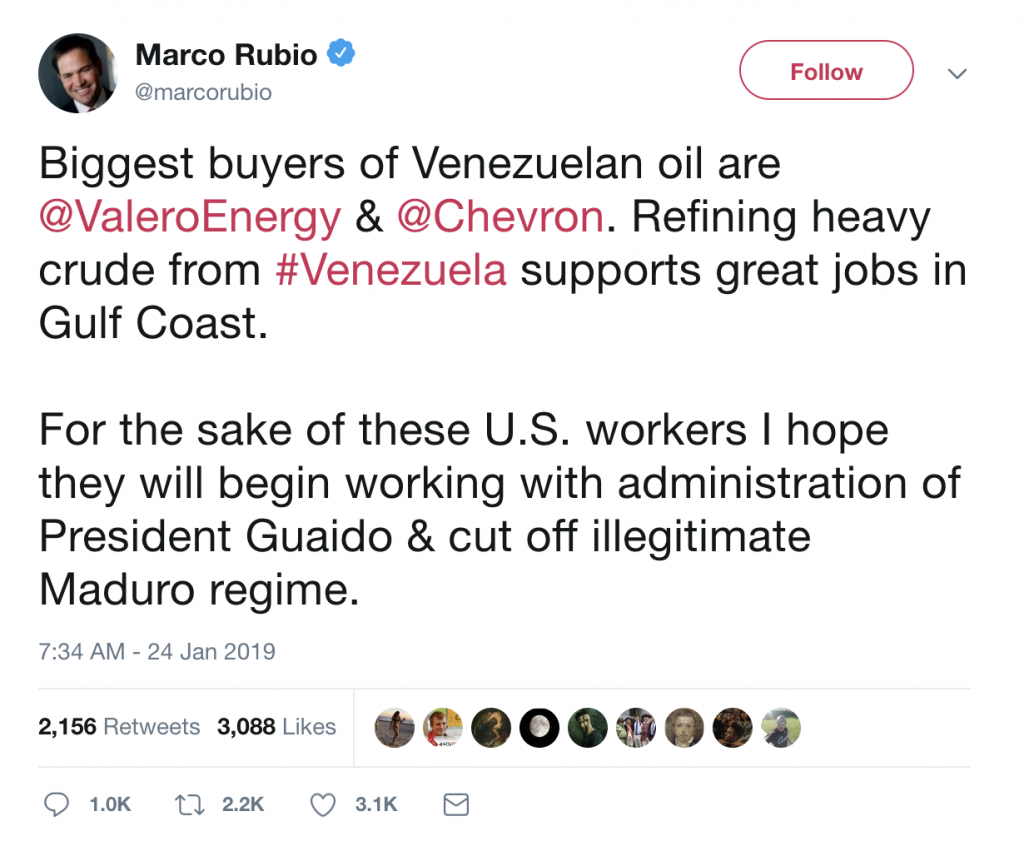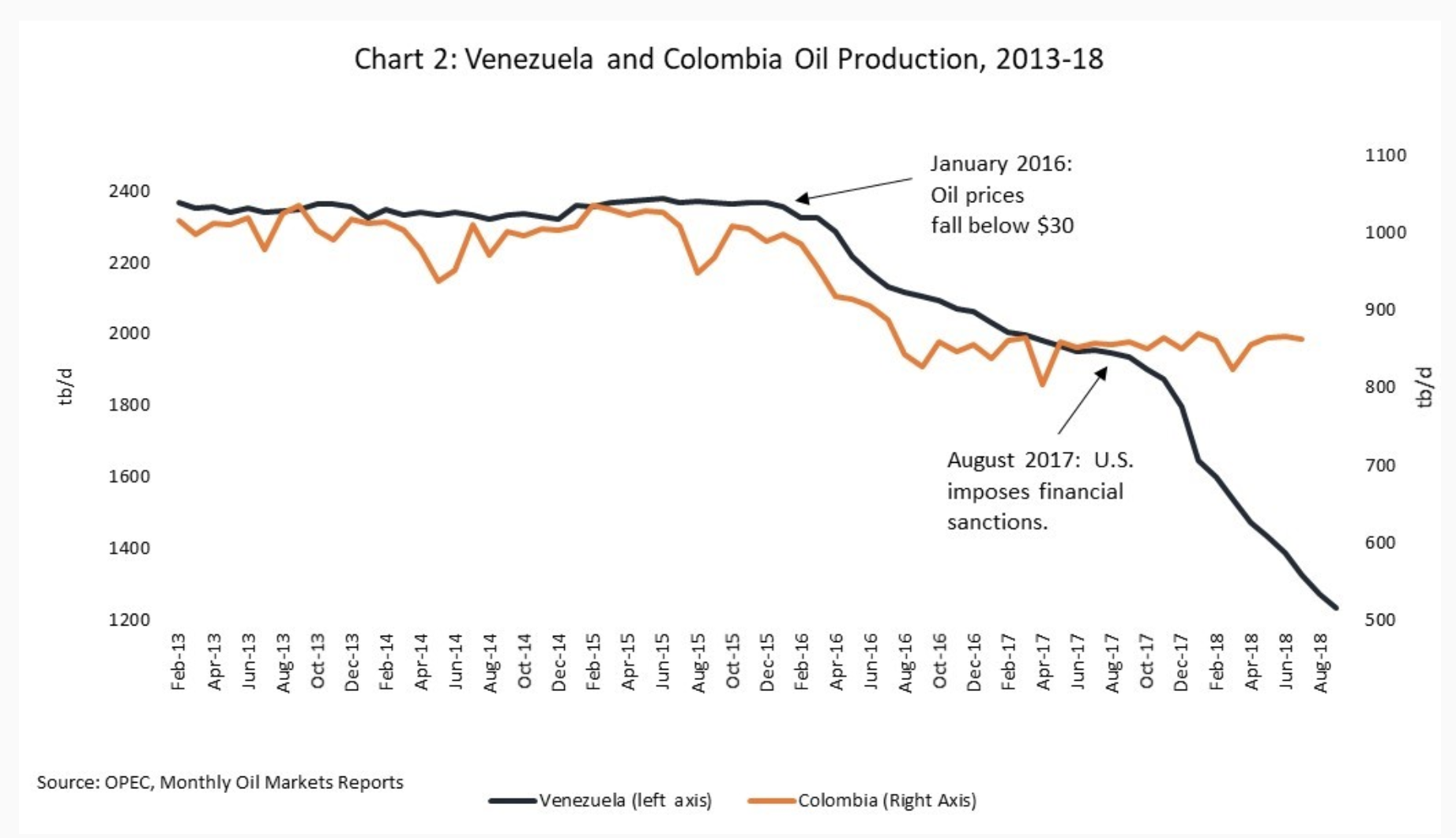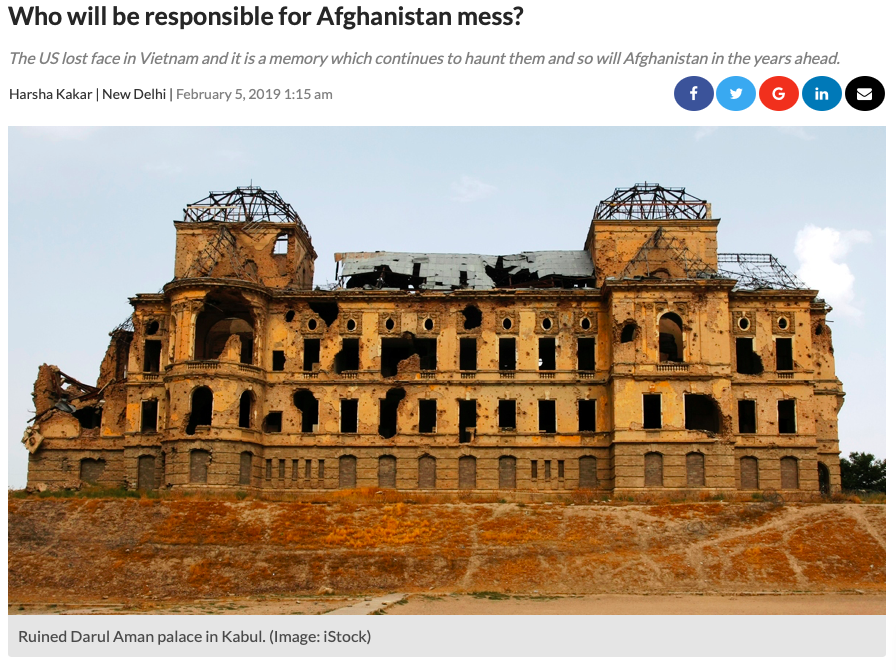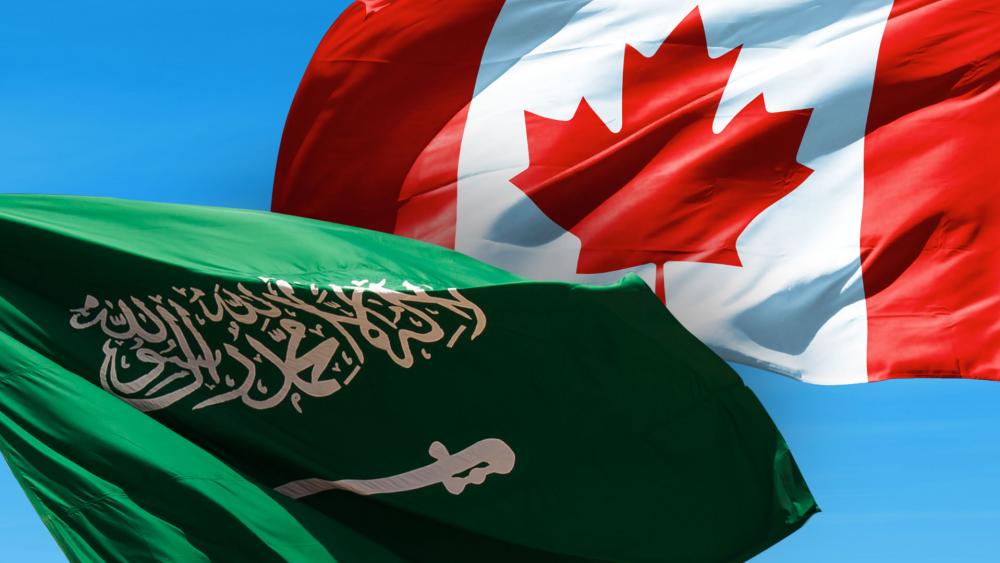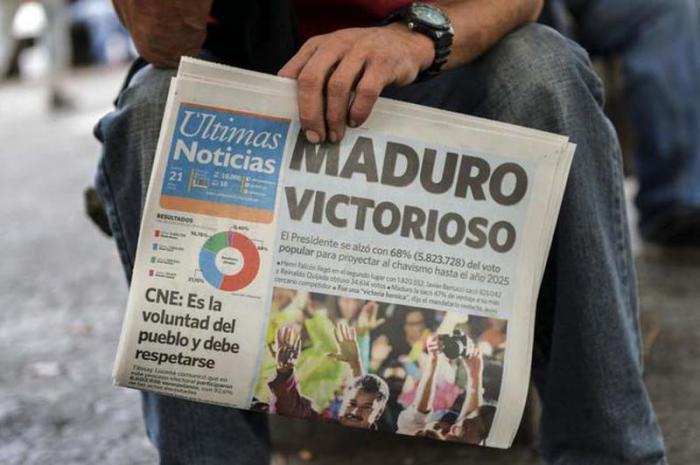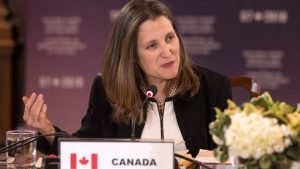The decision from Global Affairs Canada to recognize an unelected, unconstitutionally self-proclaimed interim president of Venezuela came “within minutes” of Juan Guaido’s declaration on Jan. 23, the CBC reports. A mere two weeks after the inauguration of democratically-elected Nicolas Maduro, Guaido, a little-known politician heading Venezuela’s opposition-controlled National Assembly declared himself president until another election is held. Canadian Foreign Affairs Minister Chrystia Freeland issued a statement shortly thereafter fully supporting Guaido and demanding the ouster of Maduro.
It’s imperative to note, however, that contrary to what Freeland claims, Guaido’s declaration violates Venezuela’s Constitution. According to the document, defined by its radical mechanisms that ensure power rests largely in democratically-elected popular institutions such as communes, for instance, the nation’s president must first be deemed unfit or absent to carry out his or her duties before someone else can legally assume the presidency. Section 233 outlines all the ways, including death, resignation or mental incapacity, to name just a few, that a president can be deemed unfit. As such, a very alive, mentally aware and democratically-elected Maduro candidly, and with the infectious humor Venezuelans are known for, pointed out during a televised Jan. 24 speech:
“Estoy vivo, gracias a Dios y seguiré vivo por muchos años….y estoy bien del coco…y más duro que nunca.” (I’m alive, thank God, and will be for many years to come… My mind is still clear… and I’m going harder than ever.)
Additionally, Section 233 clearly states that if the president is indeed deemed unfit or absent within the first four years of taking office, new elections shall be called within the following 30 days, during which time the Executive Vice President will assume the presidency. The constitution only allows the president of the National Assembly – in this case, Guaido – to assume the presidency during the first 30 days if the elected president is deemed unfit or absent before taking office. None of these conditions have been met, making Guaido’s self-declaration unconstitutional and thus illegal.
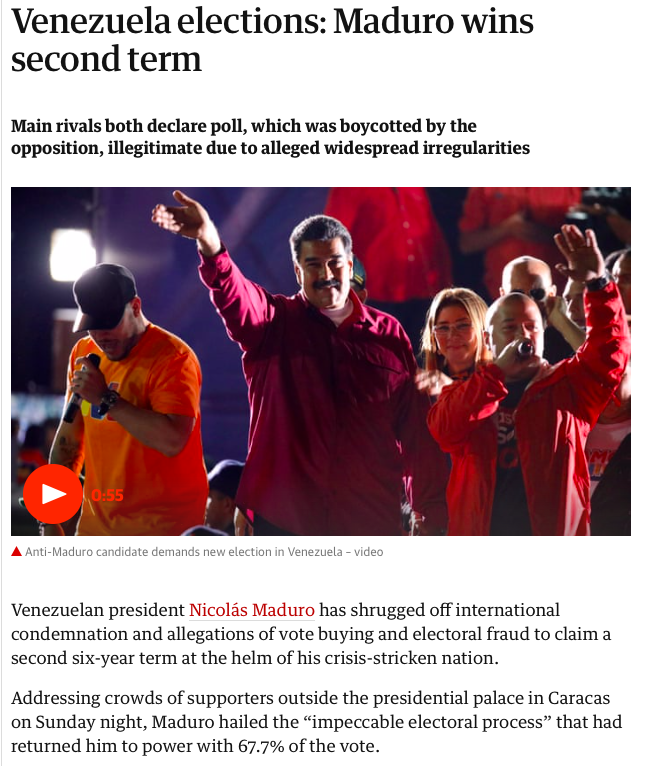
Screengrab from The Guardian
What’s more, Guaido, as well as Canada’s mainstream media, claim that despite the illegality of his self-declaration, the move was necessary because Maduro won under contested terms in the May 20, 2018 presidential elections.
But the truth is that all of the 150 international observers, including members from various civic organizations and former heads of states, who were there to monitor the elections as part of an agreement between the opposition and the Maduro government, “unanimously” agreed that the elections were fair and transparent. In the 11-page report prepared by the Canadian delegation, for example, all members conclude they all “witnessed a transparent, secure, democratic and orderly electoral and voting process.”
In fact, even members of the opposition, many of whom reportedly participated in the world-renown vote-auditing process, which includes several different levels of electronic and manual auditing, had agreed at that time that the process had been carried out fair and square. It wasn’t until they lost (and in the months leading up to the audited elections) that they cried foul. What’s more, contrary to the media’s narrative that the elections were rushed by Maduro – which parrots the Canadian Foreign Affairs Ministry’s position – the elections were held when they were, largely at the request of the opposition.
That’s evidenced in the formal written peace agreement presented to both the Maduro government and the opposition members by former Spanish Prime Minister José Luis Rodríguez Zapatero after almost two years of peace negotiations. On February 2018, the “Agreement of Democratic Coexistence for Venezuela” was finally ready to be signed by everyone, teleSUR English reported. In it, the incumbent Maduro government had agreed to many of the oppositions’ demands, including getting rid of pro-government “red points” controlled by Chavistas and a call for international UN and OAS observers and to hold the presidential elections as early as possible rather than in December, as is customary in Venezuela, the Canadian delegation’s report states. “But at the last minute,” Raul Burbano, one of the observers from that delegation tells the Media Co-op, “the opposition walked away.” Although there is no conclusive evidence, the Canadian delegation’s report states that on the same week the agreement was to be signed,
“Former US Secretary of State Rex Tillerson while on tour of Latin America openly called for regime change in Venezuela. A day later, the Venezuelan opposition backed out of the agreement and refused to participate in the early elections which they had called for.”
As for the claim that Maduro barred individuals or parties from running in the elections, the truth is that it was the Constitutional Chamber of the Supreme Court of Venezuela (not Maduro) who disqualified certain parties due to violations of the aforementioned electoral process.
On Jan. 25, 2018, the Canadian delegation’s report states that the Court “ordered the (Electoral National Council) to exclude the MUD from ballot validation process” after ruling that the coalition’s structure, “the consolidation of various political organizations, some renewed and others pending renewal violated the electoral process.” Essentially, Burbano explains, the coalition was trying to double-dip by putting forward representatives as both individual candidates and as parties. They weren’t really trying to “rig the system,” he says, “but play the system.” Other opposition members like Leopoldo Lopez and Henrique Capriles – two of the most popular ones – were not able to run because they have been either accused, tried and convicted of crimes or barred from running due to corruption. Currently, Lopez is serving a 14-year prison term, which has been commuted to house arrest due to “humanitarian measures” taken by the supreme court, The Guardian reports, for inciting the violent 2014 protests that claimed several lives. And in 2017, the Comptroller General’s office barred Capriles from holding public office for 15 years “on the ground of alleged misconduct, though no bribery charges were brought against him,” according to a report by Venezuelanalysis.com.
These facts, it seems, are inconsequential to Canada’s officials and the media.
But while much of this news may come as a surprise to people, the wheels of the American Empire had actually been in motion in Venezuela for a long time, and Canada had been serving as the oil greasing those wheels.
Anticipating a Coup
As the Canadian Press would reveal, the plot among Canadian diplomats in Caracas and their Latin American and Caribbean counterparts, united under the so called Lima Group, to install Guaido in order to undermine Maduro had been “a labour of months.” Together with the other dozen or so heads of states, Canada had been brainstorming how to unite Venezuela’s opposition under one strongman. That man, described in a piece by alternative news source The Gray Zone as a “previously unknown political bottom-dweller,” would be Guaido. But “political bottom-dweller” though he may have been, he had also been the “product of more than a decade of assiduous grooming by the US government’s elite regime change factories,” according to The Gray Zone’s piece, titled “The Making of Juan Guaido: How the US Regime Change Laboratory Created Venezuela’s Coup Leader.”
Active among Venezuelan right-wing student activists, Gray Zone writers Dan Cohen and Max Blumenthal say Guaido grew up learning to undermine the socialist government. As a politician, he immersed himself in the “most violent faction of Venezuela’s most radical opposition party, positioning himself at the forefront of one destabilization campaign after another.” This made him prime meat for Washington.
“Guaido is more popular outside Venezuela than inside, especially in the elite Ivy League and Washington circles,” Diego Sequera, a Venezuelan journalist and writer for the investigative outlet Mision Verdad told The Gray Zone. “He’s a known character there, is predictably right-wing, and is considered loyal to the program.”
So it should come as no surprise that Canadian officials had “anticipated” Guaido’s move, as the Canadian Press reports, since they had been “keeping in close contact with” him long before everything unfolded. In fact, exactly one year before Guaido’s illegal proclamation, on Jan. 23, 2018, Canada had already played a key role in the fourth Lima Group meeting, in which it voiced total “rejection” for the presidential election call, according to a 2018 official government document. On Feb. 4, Ottawa will host yet another Lima Group meeting on the subject. Canada also provided more than $800,000 in “humanitarian aid” to various “humanitarian partners.” Many of those “humanitarian partners,” however, include the likes of organizations like Amnesty International and Human Rights Watch, to name a couple, which are run by “politicians and ‘managers,’” says Alfred De Zayas, former UN special rapporteur to Venezuela. And since they “all depend on donations…the donors tend to set the agenda.”
Of note is the fact that despite claims to Canada’s historic rejection of US-style intervention in Latin America, as one Toronto Star editorial purports, the truth is that Canada’s record for backing, financing and facilitating US-led invasions of Latin America is as sordid as it is opportunistic – in the shadows and behind the curtains, waiting to feed on what the empire breaks off, not unlike the actual species of bottom-feeding fish that have learned to cover themselves before they strike.
It is thus entirely in step with its foreign policy – founded on colonialism and capitalism – that Canada has formally recognized an unelected, self-proclaimed interim president in Venezuela who is backed by the US and who stands against everything Hugo Chavez, the Bolivarian Revolution, and the democratically-elected president Nicolas Maduro defend. That Canada is openly endorsing a US-led coup d’etat in-the-making should be a clear sign that its foreign policy is one rigidly guided by the same corporate interests as those of the American empire which seek to, above all, control the world’s oil supply.
It should not come as a surprise, however, says Todd Gordon, a law and society professor at Laurier University and author of Blood of Extraction: Canada’s Imperialism in Latin America, as it is “nothing new.”
“If your policies are not deferential to multinational corporations and the neoliberal orthodox,” he told the Media Co-op, “you’re going to find yourself on the wrong side of Canadian policy.”
In the Shadow of The Empire
Intervention justified by manufactured humanitarian crises. Destabilization masqueraded as popular opposition. And regime change via coup d’etat.
That has been the United States’ proven formula in Latin America for over 100 years. During the 1970s and 1980s, the CIA was directly funding right-wing dictatorships to fight the rise of socialist governments in the region. While ostensibly the goal then was to quell the supposed evils of Soviet communist influence, the real purpose was neutralizing all popular social movements by force in order to secure access to the natural resources of those countries. As the Cold War thawed, and after two decades of backing military dictatorships, Cuba remained one of the American empire’s only remaining threats in the region, despite over 600 assassination attempts against Fidel Castro.
Then, in 1998, Venezuela’s Hugo Chavez came into the picture with a firebrand anti-imperialist, anti-Washington fervor that swept up many other South American nations and, more importantly, limited America’s access to one of the world’s largest oil reserves. The empire, once again, trembled. Since then, the socialist PSUV party, now led by Nicolas Maduro, has won over 25 elections despite a violent though fragmented opposition.
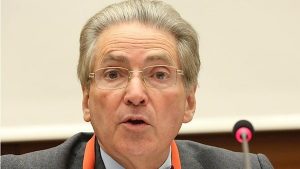
And then there are, of course, the unilateral economic sanctions the US has imposed on Venezuela, which former UN Special Rapporteur to that nation, Alfred de Zayas (image on the right), says are unequivocally illegal. They amount to “unilateral coercive measures,” De Zayas, an expert in international law, wrote in an online interview with the Media Co-op. And those “are always illegal, because they contravene the UN Charter, customary international law, and in the case of Latin America, chapter 4, article 19 of the OAS Charter.” Burbano, one of the 150 international observers, can attest to the effects of the sanctions. Pulling a quote out of Richard Nixon’s playbook, Burbano likens what’s happening to Venezuela to what happened to Salvador Allende’s socialist government in Chile in 1973, where US policy was meant to “make the economy scream.”
Less talked about, however, is Canada’s shadowy history in Latin America, which dates back to the 19th century, when its corporations and banks began to stake claims to the region. By the 20th century, those same banks had direct relationships with many of those military dictatorships the US backed. But it wasn’t until the 1990s when Canadian foreign investment in Latin America, led by banks and mining companies, really took off, making Canada one of the major foreign investor nations in the world. From that moment on, Canada began applying a “persistently aggressive…foreign policy,” says Gordon. The Pink Tide – inspired by Chavez’s 21st Century Socialism – that would push many South American nations to reject the neoliberal status quo at the turn of the century was, in fact, Canada’s key foreign policy concern. Consequently, under Stephen Harper’s Conservatives, Canada played a major role in the coup d’etats in Haiti (2004), Honduras (2009) and Paraguay (2012), ousting democratically-elected leaders. As a result, says Gordon, to date, Canadian banks have “one of the largest foreign footprints” across Latin America and the Caribbean.
By deftly promoting an image of benevolent peacekeeper, a message then sanitized by a complacent and arguably ideologically-led media, Canada has managed to reap all the rewards of the American Empire without getting its hands as dirty. On the contrary, Canada has often been considered the diplomatic, apologetic cousin of the empire, able to deliver its messages precisely because of that facade. A Trojan Horse with hockey sticks.
In The Ugly Canadian: Stephen Harper’s Foreign Policy, for instance, Yves Engler notes conversations between Canadian, American and Venezuela opposition officials who, aware of the U.S.’ dirty history in the region, colluded on how Canada could inject themselves in the country to serve as the intermediary. Canada is “a country that can deliver messages that can resonate in ways that sometimes our messages don’t for historical or psychological reasons,” Thomas Shannon, a US diplomat had quipped following Chavez’s 2006 reelection. Gordon confirms this.
“They’re very conscious of that,” he says. “Because (Canada is) in the shadow of the US, it can get away with things it otherwise might not have.”
That behavior extends beyond party lines.
Canada’s aggressive interference in Venezuela, for instance, began under the right-wing government of Stephen Harper, who, like his US counterparts, felt threatened by Venezuela’s anti-capitalist, anti-Washington stance. As early as 2006, when Chavez won with 63 percent of the vote, Canada was the only member of the OAS to join the US in denouncing Chavez’s legitimate victory.
“Six months later,” writes Engler in The Ugly Canadian, “Harper toured South America to help stunt the region’s rejection of neoliberalism and US dependence.”
By 2010, former deputy foreign affairs minister under Harper, Peter Kent, was already meeting opposition figures. Then, as in now, Kent parroted the same unsubstantiated claims about the shrinkage of democratic space in Venezuela. From then, baseless, unsubstantiated accusations against the Venezuelan government have continued to be levied by both Conservatives and Liberals alike. “Both are capitalist, corporate-oriented parties whose goal is to protect the interests of the rich and the powerful both in Canada and internationally,” Gordon says. “Liberals put a more social and glossy face on things. Conservatives are more blunt about it. But the end goal…is the same.”
Indeed, today, under Trudeau, nothing has changed – not the tone or scope of media coverage nor Canada’s foreign policy. The narrative remains the same.
Selling a Humanitarian Crisis
It’s indisputable that the situation in Venezuela is dire. Many hardships, particularly economic and social ones, have shaken that nation, and political divisions are rooted deep within the population. But these bare facts, stripped of an explanation, context or analysis do not amount to a humanitarian crisis, which is the narrative that western media has continued to push despite mounting evidence to the contrary.
For instance, in a CBC interview late last month with Burbano of Common Frontiers, the host took what many listeners on Twitter later described as a “combative” tone. During a short eight-minute interview on the CBC’s As It Happens, host Carol Off seemed uninterested in Burbano’s side of the story, which contradicted the calamitous picture she had been trying to paint.
“I don’t think anybody can deny there are challenges, economic, social, political in Venezuela,” Burbano said, explaining he had seen it for himself last May when he was there and spoke to people on the ground. “But there’s not a humanitarian crisis in Venezuela…The term ‘humanitarian crisis’ is used as a political screen to create the political conditions to intervene.”
But Off pushed ahead with her script, claiming that neither of them could opine on the matter since they didn’t live there but, in the same breath, asserting: “This is a humanitarian crisis.” Burbano pointed out that what he said was based on what he experienced, which had been confirmed by many others who had also visited the country, including De Zayas, whose detailed UN report Burbano mentioned repeatedly. Off made no attempt to inquire about that report. Burbano also mentioned the human rights violations that mar other countries supporting Guaido like Colombia, for instance. Off ignored that too.
By contrast, on Jan. 31, the CBC devoted 20 minutes to interviewing Maria Corina Machado, a prominent member of the opposition who helped plot and execute the unsuccessful 2002 coup, and former Canadian Ambassador to Venezuela Ben Roswell, who bumbled on about how Canada’s intervention is not the same as the American intervention.
During the unusually-long segment of the CBC’s The Current with Anna Maria Trimonti, Machado and Roswell – two uncritical faces of the same coin – were essentially given an ample platform to further the same narrative with next to no critical questions coming from Trimonti. Perhaps one of the few moments when Trimonti pushed Machado was when she played back a recording of an earlier interview with a prominent Canadian writer who has denounced Canadian and the US’ intervention in Venezuela as a coup, hoping to elicit a response. Instead, Machado evaded the question and went back to her talking points suggesting the fight isn’t ideological but about helping starving Venezuelans. Machado went on for minutes without Trimonti even attempting to return to her question. Near the end of Machado’s nine-or-so minutes on air, Trimonti mentions Machado’s role in the 2002 coup. Machado once again evades the question. Trimonti doesn’t push.
The only thing Machado didn’t twist or lie about was when she admitted the main priority for the opposition was to return Venezuela to a neoliberal, open-market economy – the same that kept millions of Venezuelans in poverty before Chavez. This “goes beyond Maduro,” said Machado, a disgraced member of the National Assembly who in 2014 was welcomed to Toronto’s financial district by Harper in order to (unsuccessfully) rally anti-Maduro support. “We want…Venezuela to be brought again to the bloc of Western democracies,…open markets and true integration.”
The thing is, Burbano is not alone. As he pointed out to Carol Off during his short interview, others such as former UN Rapporteur De Zayas himself, as well as all 150 international observers, 68 percent of the Venezuelan voters who supported Maduro and huge parts of the international civic and political community all agree that there is no humanitarian crisis and that Maduro is the legitimate, democratically-elected president. But if a humanitarian crisis can be created, or at least its illusion sold, foreign intervention can be justified. “That’s what they do,” Gordon says, referring to how the mainstream media helped sanitize Canada’s role in the coups of Haiti, Paraguay and Honduras. “They don’t say, ‘We’re fomenting a coup.’ They say, ‘We’re doing democracy promotion.’” De Zayas agrees: “The only purpose of maintaining that Venezuela is suffering a humanitarian crisis is to justify a military humanitarian intervention – which of course would violate article 2(4) of the UN charter.”
So why does the media refuse to give a voice to these dissident views? Or not at least present this other side of the story, which is publicly available, documented and verified?
In a word: Money.
Money, Money, Money
“There is too much money at stake,” De Zayas, the first UN Special Rapporteur to visit Venezuela in 21 years, tells the Media Co-op. “Venezuela’s oil and gold reserves are so huge that many in the US and EU are rubbing their hands in the expectation of the loot if Maduro is toppled and the natural resources of Venezuela are privatized.”
Indeed, in a particularly revealing freudian slip, US National Security Adviser John Bolton admitted during a Fox News interview that Venezuelan oil was their main target.
“We’re in conversations with major American companies that are now either in Venezuela or in…the United States,” the senior official admits. “I think we’re trying to get to the same end result here. Venezuela is one of the three countries….(that) will make a big difference to the United states economically, if we can have American oil companies invest in and produce the oil capabilities in Venezuela.”
For his part, De Zayas has spent most of his adult life shouting this from the rooftops to no avail. He was a former member of the Office for the United Nations High Commissioner for Human Rights for decades, as well as Secretary of the Human Rights Committee and Chief of the Petitions Department. He is also an international law expert and was the Douglas McKay Brown Chair in International Law at the University of British Columbia in 2003. Following his two-year fact-finding mission to Venezuela concluding in 2018, De Zayas wrote a detailed and lengthy report clearly stating that while criticisms exist of the Maduro government (as criticism exist in every country, including Canada), the main factors affecting the Venezuelan economy and fomenting social and political unrest were the United States’ economic sanctions and economic war that has been waged in collusion with other nations against Venezuela. Yet, that report, as many others, has fallen mostly on deaf ears at the UN, he says. The few who do pursue it in hopes of challenging the accepted narrative – namely that “We Americans are the good guys, we know what is good for the world, we bring them democracy and human rights” – are often “ostracized, mobbed, ignored,” De Zayas says.
But that doesn’t excuse the “unprofessional journalists” who choose to ignore the findings, which are public domain and available for anyone to explore and challenge. “It was and is unprofessional of the journalists to suppress information,” he says. “If they disagree with the findings and recommendations in my report, they should say so. But since they cannot disprove my findings, they prefer to ignore them.”
Of course, De Zayas, like Sisyphus, may be perpetually condemned to push his findings on institutions, not merely individuals, with core structures defined by “hardball politics, blackmail and twisting of arms,” as he candidly puts it. “Ambassadors have told me more than once what pressures they have been subjected to — not only from the US, but also from the UK and EU. Basically it is geopolitics and money — human rights have been weaponized in order to destabilize states where there is something to gain.”
Unfortunately, in Venezuela, one of the few remaining bastions of Socialism in Latin America and the Caribbean alongside Cuba and Bolivia, there is much the American empire wants to gain. But contrary to the idea the mainstream media wants to sell, Maduro’s socialist, democratically-elected government does not stand alone in the world, is not a dictatorship, and has more than enough support at home and abroad to withstand the empire and all its servants’ attacks.
Very Much Alive
That’s perhaps why the opposition and its international allies, including Canada, and the media that transmits its messages, are desperately trying to portray dissidence in the military, as it is the loyalty of that institution to Maduro which, to a large extent, is keeping the wolves at bay. But except for a few low-ranking and in-between dissident officers, one “attache” quoted in the Toronto Star, and one air force general, the truth is the military has remained steadfastly loyal to Maduro, to the Bolivarian Revolution and Constitution and, above all, to the People.
In fact, it didn’t take but a day following Guaido’s unconstitutional declaration for those in high commands, and virtually all of the military, to openly and publicly support Maduro and denounce Guaido.
“We, the Homeland’s soldiers, do not accept a president imposed in the shadow of obscure interests and self-proclaimed outside of the law,” Padrino Lopez, Venezuela’s Defence Minister, Tweeted in Spanish on the 24th of January, reported Sputnik News.
That same day, Maduro delivered a speech from inside Venezuela’s Supreme Court alongside other delegates and the military’s various high commanding officers.
Additionally, while the media continues hyping the number of countries that are backing Guaido, the number that support Maduro are also rising. Yet, in a world where geopolitics reigns, perhaps more important than how many, is who is supporting Maduro and who is supporting a US-led coup. For instance, among the top US supporters are Brazil, who is currently led by an extremist right-wing fascist; Ecuador, led by a traitor of that country’s Citizen’s Revolution who is currently leading the nation down a neoliberal path; and Colombia, a major and recognized violator of human rights, to name just a few.
Supporting Maduro since the beginning have been Bolivia and Cuba’s public pride – two nations whose social policies have lifted millions out of poverty (facts that are well-documented), and, in the case of Cuba, produced some of the best and most internationalist-oriented doctors who’ve assisted nations in emergencies despite their governments’ ideological differences. Other international heavy players like Mexico, Russia, China, Turkey and Iran have also come out in support of Maduro. And though many people may raise legitimate critiques of some of those countries, most will nevertheless certainly and conveniently ignore the fact that the US’ and Canada’s official recognition of Guaido actually violates international law, as De Zayas, the international law expert, explains. That should matter to a country like Canada that is “ostensibly committed to democracy, the rule of law and human rights,” De Zayas argues, pointing to the “arbitrarily” selective nature in which international law and human rights abuses are pursued: “It’s human rights a la carte – today yes, tomorrow no. For some victims yes, for others not.”
Venezuela by and for Venezuelans
The Lima Groups’ meetings over the next few months, says Gordon, will likely continue to focus on how to oust Maduro – either by rushing military action or by waiting and hoping Maduro loses more support. The Americans have certainly not taken a military invasion off the table. However, says Gordon, what’s more likely is that they all will opt for backing a military coalition in which “the US was not the major player” but led instead by Colombians and Brazilians, with “some smaller role for the US in terms of direct military intervention, and some small role for Canada.”
To Gordon, the possibility that the US-led opposition will fully realize the coup is “definitely” real. “I think if they feel they can do it with little bloodshed, they will,” he says. “But whether they can or not, is another question.” That’s why international solidarity movements are crucial. Though he doesn’t believe they alone can deter a coup if a coup is coming, he says it’s still “very important…to let governments know not everyone buys into what they’re doing.”
Burbano is more hopeful. He considers the solidarity of labour movements across state lines imperative to challenging the status quo and, more importantly, defending the onslaught of attacks from the empire and its servants. “The best thing the labour movement in Canada can do is…build links with the labour movement [in Venezuela],” he says, “and get a better sense of what social movements are saying on the ground.”
At the very least, the solidarity actions which are happening across Canada prove that not everyone is drinking the kool-aid. Canada’s largest union, CUPE, representing over 700,000 workers has publicly denounced Canada, the US and Guaido for their attempts to foment a coup, according to a released statement. CUPE “rejects any attempt by the Canadian government to interfere with the democratic processes and sovereignty of the Venezuelan people,” the public statement says. Memebers of Canada’s NDP have also denounced Canada’s move, most notably Nikki Ashton.
It would be interesting to know what minister Freeland, whose constituent office is in downtown Toronto, where many of the solidarity actions have taken place, thinks of all this. Unfortunately, neither she nor anybody from her office provided comment for this story, despite multiple requests made. The minister must be busy preparing for talks with Lima Group members, including other human rights abusers, set to take place Monday, February 4th in Ottawa.
One thing is for certain: Venezuelans and Venezuelans alone will fix their own problems, and as long as the People speak up – not coup plotters or foreign governments – the Bolivarian Revolution will live to struggle yet another day.
*
Note to readers: please click the share buttons above. Forward this article to your email lists. Crosspost on your blog site, internet forums. etc.
Featured image: Foreign Affairs Minister Chrystia Freeland in Switzerland announcing Canada’s support for Guaido. Photo: Alan Santos
